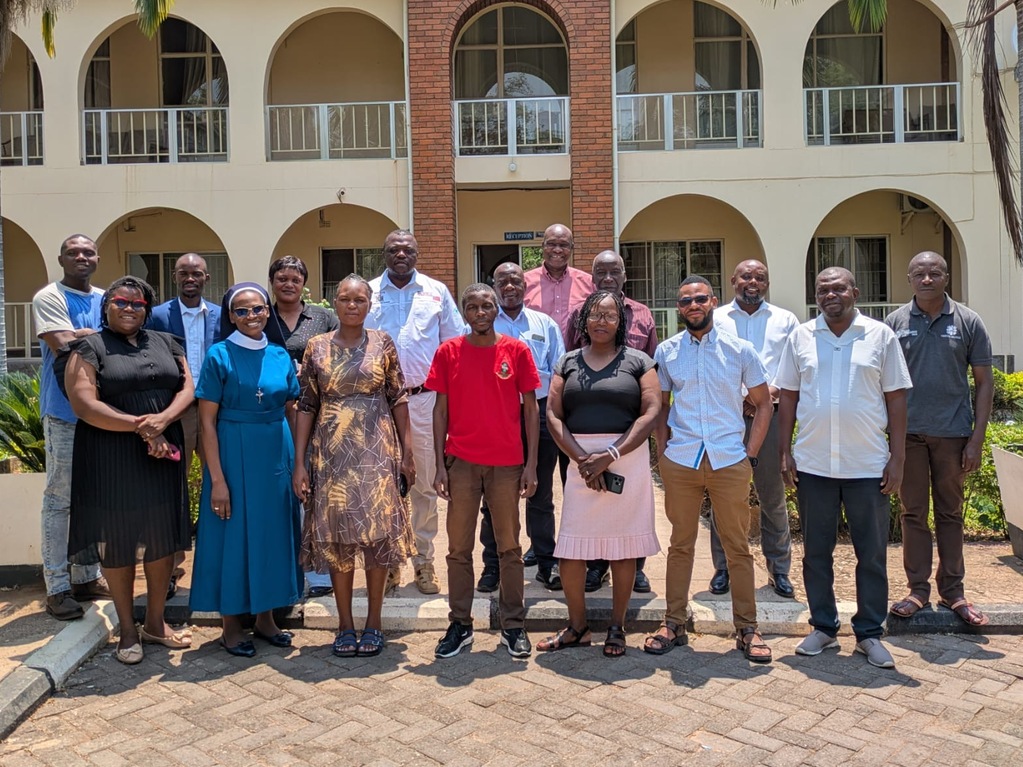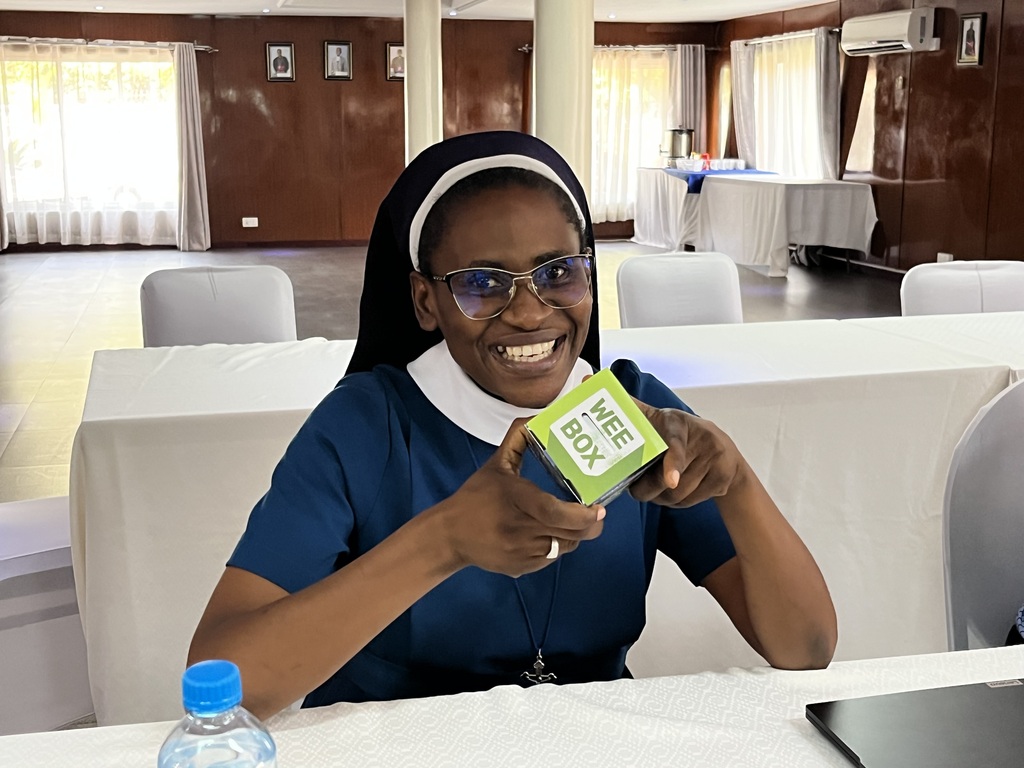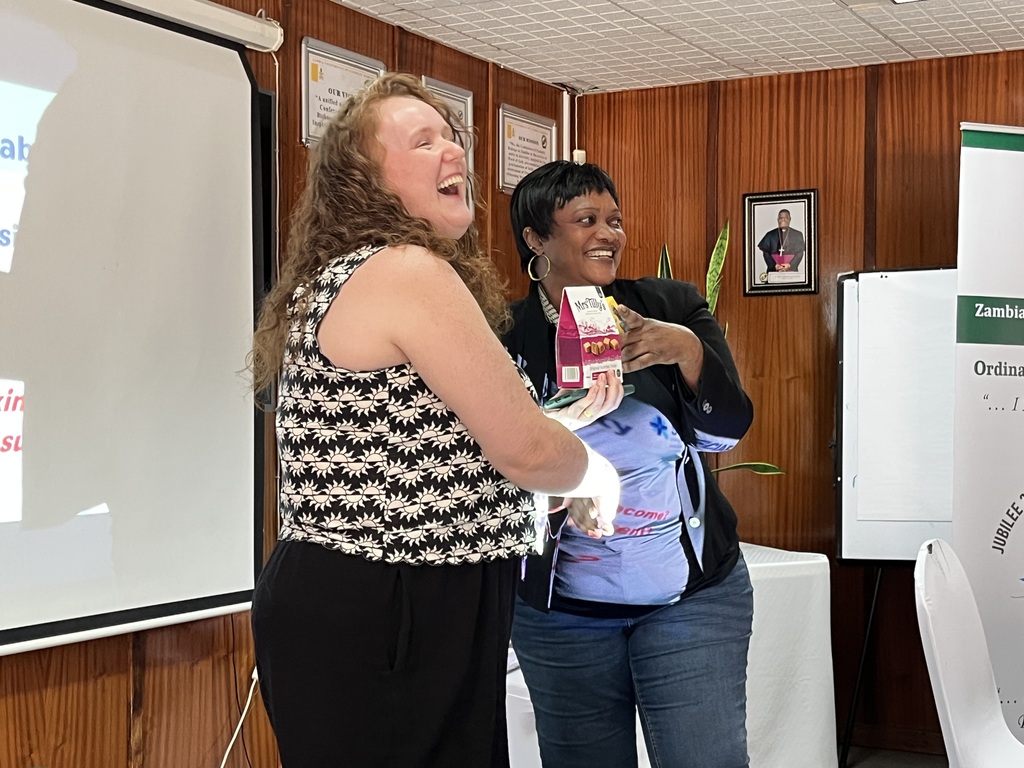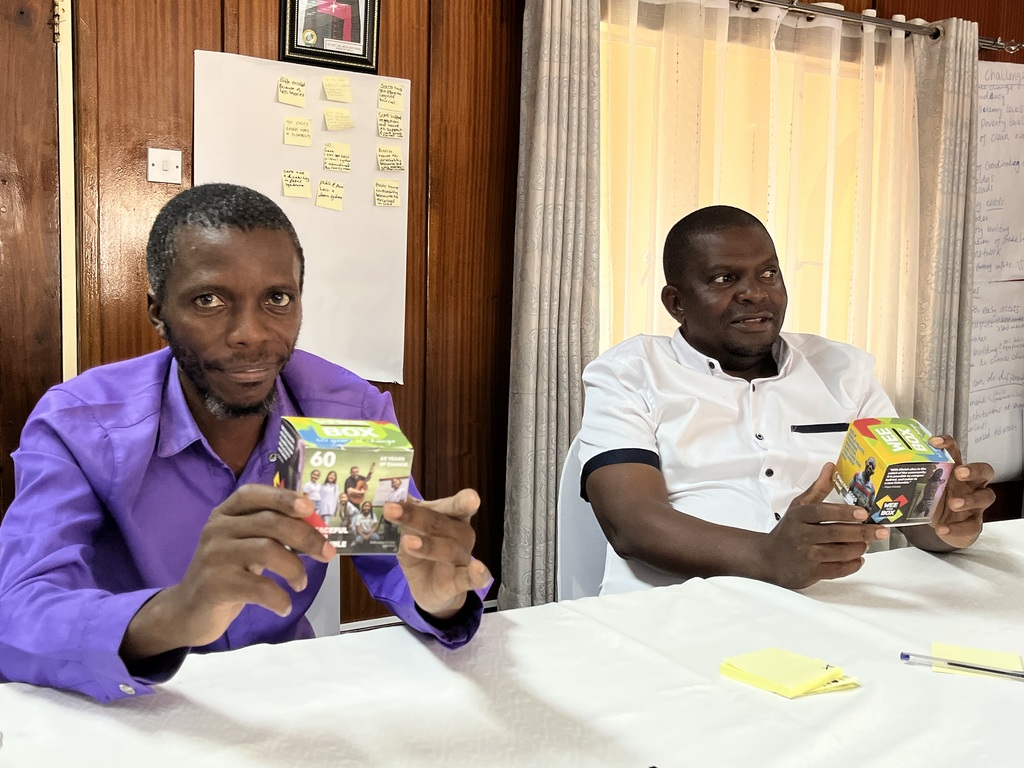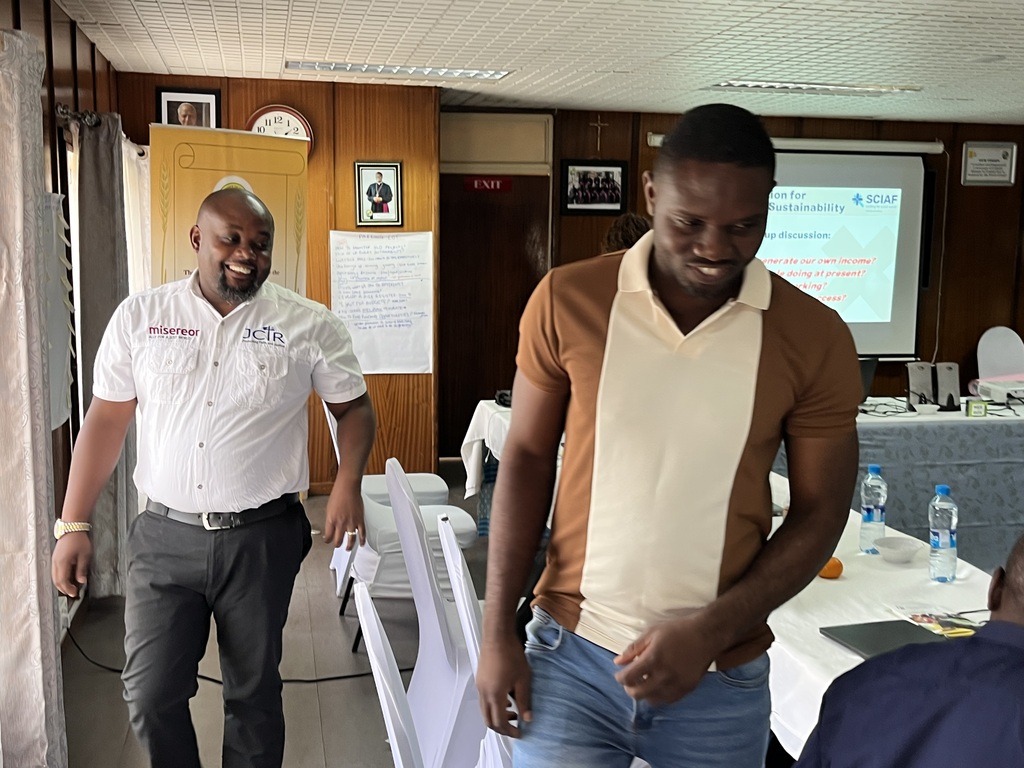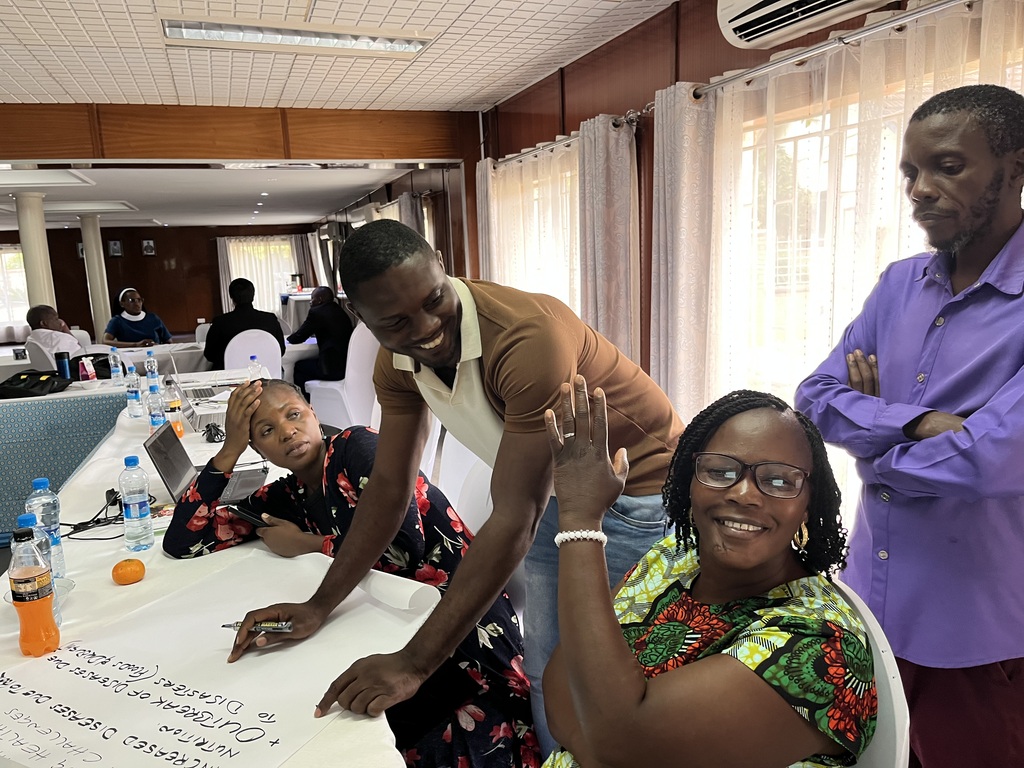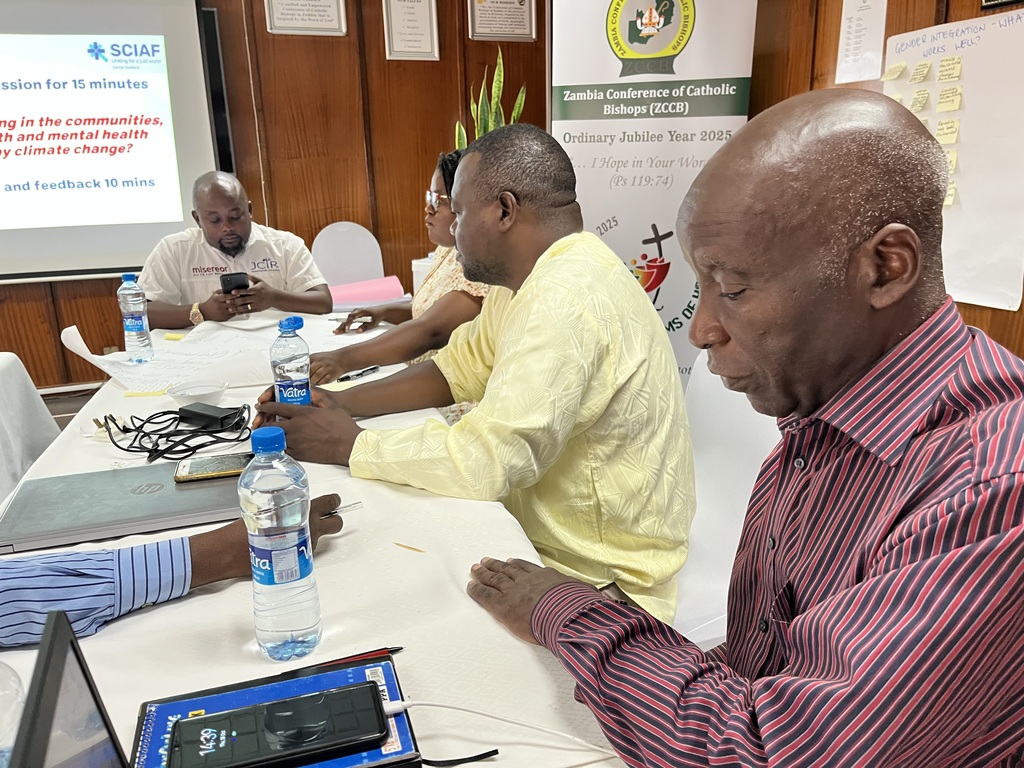THURSDAY, OCTOBER 30, 2025, LUSAKA - From October 28 to 30, the Jesuit Centre for Theological Reflection (JCTR) joined other partners of the Scottish Catholic International Aid Fund (SCIAF) for a three-day Zambia Partner Workshop held at Kapingila Guest House in Lusaka. Facilitated by Aisling Gallacher (SCIAF Zambia and Malawi Programme Officer), the workshop provided a reflective and interactive space for partners to share experiences, discuss priorities, and strengthen collaboration across programmes.
The sessions encouraged honest dialogue on community realities, organisational growth, and the collective pursuit of social justice and sustainable development. Discussions were complemented by practical exercises on humanitarian response, proposal development, and integrating cross-cutting issues such as gender, inclusion, and climate change.
Emerging Issues from the Parking Lot
Throughout the workshop, participants noted several key issues and ideas in the Parking Lot—a reflective space capturing themes requiring further discussion and follow-up.
Day 1: Sustainability and Local Impact
- Monitoring old projects: Partners highlighted the need for structured mechanisms to track long-term outcomes and lessons learned.
- Sustainability: Emphasis was placed on strengthening community ownership and integrating sustainability measures from project inception.
- Livestock pass-on initiatives: Calls were made to enhance transparency and consistency in implementation.
- Mining challenges: Concerns were raised over the environmental and social implications of increased mining activities in Zambia.
- Agroecology documentation: Partners proposed developing films, reports, and pictorial stories to showcase impact—while encouraging greater government engagement.
Day 2: Accountability, Innovation and Funding
- Rethinking our approaches: Reflection on how to adapt and innovate for greater effectiveness.
- Shrinking civic space: Partners acknowledged the growing challenge of restricted advocacy environments.
- Risk management: The need to develop and maintain a shared risk register was emphasised.
- Budgeting and proposal writing: Continued peer learning among partners was encouraged.
- Monitoring, Evaluation and Learning (MEL): A common MEL plan template will be shared to enhance consistency.
- Funding opportunities: Partners discussed strategies for identifying and accessing new funding streams.
- Income Generation for Organisational Sustainability: Partners also discussed ways in which incomes can be generated outside the confines of donor funding. Best practices, progress and stories of succes were shared.
JCTR contributed to the workshop through a presentation on effective community advocacy and lobbying, sharing practical approaches and lessons from its ongoing work in promoting social accountability and policy engagement.
Day 3: Gender, Culture, and Inclusion
- Gender and cultural traditions: Partners discussed how to promote gender equity while respecting cultural values, and reflected on what might need to change to achieve true inclusivity.
- Inclusion and climate impact: Discussions also examined the intersection of disability inclusion, health, and the growing effects of climate change on communities.
A Shared Commitment
The workshop reaffirmed the strength of partnership among SCIAF-supported organisations in Zambia. It underscored the collective resolve to advance community wellbeing through collaboration, reflection, and innovation.
“True partnership is more than funding — it is about shared vision, mutual learning, and a united effort to transform communities.”
As a partner, JCTR remains committed to contributing evidence-based research, advocacy, and communication that support just policies, promote sustainable livelihoods, and amplify community voices in the pursuit of social justice.
